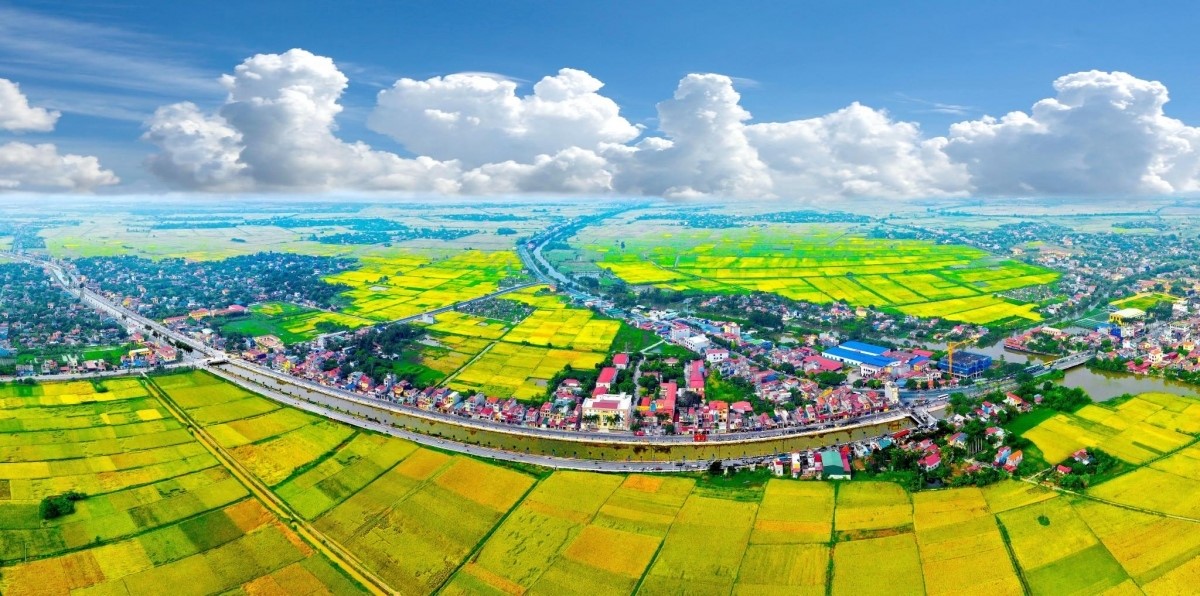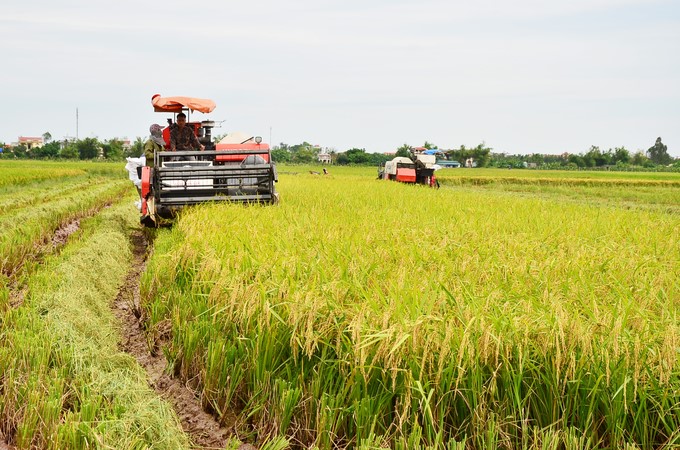November 25, 2025 | 19:06 GMT +7
November 25, 2025 | 19:06 GMT +7
Hotline: 0913.378.918
November 25, 2025 | 19:06 GMT +7
Hotline: 0913.378.918

Establishment of the Red River Delta Regional Coordinating Council. Photo: VOV.
Prime Minister Pham Minh Chinh has just signed Decision No. 826/QD-TTg dated July 11 on the establishment of the Regional Coordination Council of the Red River Delta (Regional Council for short). This establishment aims to renew the regional coordination mechanism, promote the region's socio-economic development rapidly and sustainably, protect the environment, and ensure national defense and security.
Decision 826 stipulates the function of the Regional Coordination Council (RCC), which is an interdisciplinary coordination organization established by the Prime Minister. The Council performs the function of assisting the Prime Minister in researching, directing, coordinating, and resolving important and interdisciplinary work on regional linkage and sustainable development in the Red River Delta.
The RCC is chaired by the Prime Minister, and the Permanent Vice Chairman is the Minister of Planning and Investment. Ministers of Construction, Natural Resources and Environment, Science and Technology, and Industry and Trade hold the roles of Vice Chairman.
Council members include Deputy Ministers and equivalents of Ministries and ministerial-level agencies: Planning and Investment; Finance; Transport; Health; Education and Training; Information and Communications; Public Security; National Defence; Foreign Affairs; Agriculture and Rural Development; Labour, War invalids and Social Affairs; Culture, Sports and Tourism; Office of the Government; Chairman of the People's Committees of provinces and municipalities, including Hanoi, Hai Phong, Quang Ninh, Hai Duong, Hung Yen; Vinh Phuc; Bac Ninh; Ha Nam, Nam Dinh; Ninh Binh, and Thai Binh.
In addition, RCC may establish sub-committees to act as focal points for coordination by sectors, fields, or sub-regions. The sub-committee is organized and operates under the concurrent regime prescribed by the RCC’s Chairman.
The advisory and assisting apparatus of the RCC, Ministries, and People's Committees of provinces and municipalities includes the RCC Office, Ministerial-level Coordination Team, Provincial-level Coordination Team, and the Advisory Team.
According to the assigned tasks and powers, RCC is responsible for researching and proposing to the Prime Minister directions, solutions, mechanisms, and policies to implement the objectives and tasks in the Politburo’s Resolution No. 30-NQ/TW dated November 23, 2022, on socio-economic development and ensuring national defense and security in the Red River Delta by 2030, with a vision to 2045.
RCC also assists the Prime Minister in directing, regulating, coordinating, urging, and guiding the implementation of objectives, tasks, programs, projects, and regional linkage activities to ensure synchronous, consistent, and effective implementation in accordance with the provisions of law and plans approved by the authorities.

Large field in Thai Binh province. Photo: Duong Dinh Tuong.
RCC takes responsibility for coordinating activities of formulating, adjusting, and implementing national master plans, master plans for the Red River Delta region in the 2021–2030 period, with a vision to 2050, and plans for provinces and cities in the Red River Delta region in the 2021–2030 period, with a vision to 2050.
Researching and proposing institutions, mechanisms, and policies to develop the Red River Delta region and promote regional and sub-regional linkages, and ensuring the synchronous, consistent, effective, and disciplined implementation of those regulations, mechanisms, and policies.
Organizing investment promotion activities, mobilizing resources, and attracting investment; coordinating the use of public investment capital to direct and lead non-state investment resources (FDI, corporate capital, and private capital); and promoting investment under the mode of public-private partnership (PPP), especially in the development of the region’s strategic and important infrastructure.
Coordinating linkage activities to synchronously develop the socio-economic infrastructure system, with priority given to the transport infrastructure system. Researching the formation of a Regional Infrastructure Development Fund.
Guiding and supporting localities in the region to deal with inter-provincial and municipal issues that are not under the jurisdiction of localities in the region. Coordinating with other regions in socio-economic development cooperation with connectivity between regions.
Coordinating central ministries and branches to give opinions on investment, construction, and development of education and training institutions, vocational education and training institutions, and human resource training; investing in the construction and arrangement of houses and cultural and welfare works in economic zones, industrial parks, export processing zones, and industrial clusters; solving social evils and security and social safety issues.
Coordinating central ministries and branches in cooperating in using labor, supporting job introduction, arranging labor resources, and handling labor disputes (if any). Promoting and supporting the formation and development of Business Associations, Trade Associations, Union Associations, and Cooperative Alliances in the whole Red River Delta region.
Deciding on the use of financial and other resources assigned to perform the RCC’s functions, tasks, and powers. In addition, the Coordinating Council performs other tasks and exercises powers assigned by the Prime Minister in accordance with the law.
Translated by Huyen Vu Thu

(VAN) The Ministry of Agriculture and Environment must spearhead the construction of green governance, spanning decision-making processes and investment standards to policy evaluation mechanisms.

(VAN) The Agriculture and Environment sector of Khanh Hoa has achieved numerous milestones over the past 80 years, contributing significantly to the goal of establishing the province as a centrally governed city by 2030.

(VAN) Viet Nam is entering the pivotal period of 2025-2030, moving toward the formulation of the Remote Sensing Law, which will establish a legal foundation for the development of national digital data.

(VAN) The agricultural sector is finalizing the strategic framework for emission reduction, setting the goal of sharply cutting methane and 403.7 million tons of CO2 equivalent and moving toward Net Zero by 2050.
/2025/11/22/2236-1-153832_483.jpg)
(VAN) The National Marine Spatial Planning is opening up opportunities for sustainable blue sea development across 21 coastal localities.

(VAN) Viet Nam’s forestry sector is undergoing a comprehensive transformation, strengthening management, protection, and development efforts to maintain ecological security and drive green, sustainable growth.

(VAN) Viet Nam is accelerating efforts to digitize reservoir operations, from real-time data to hydraulic modelling.